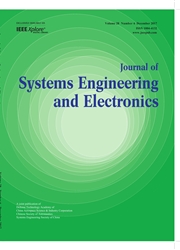

 中文摘要:
中文摘要:
This paper deals with the problem of the optimal fault detection (FD) for linear discrete time-varying (LDTV) systems with delayed state and l2-norm bounded unknown input. The novelty lies in the designing of an evaluation function for the robust FD. The basic idea is to directly construct an evaluation function by using a weighted l2-norm of the measurement output, which achieves an optimal trade-off between the sensitivity to fault and the robustness to l2-norm bounded unknown input. To avoid complex computation, a feasible solution is obtained via the recursive computation by applying the orthogonal projection. It is shown that such an evaluation function provides a unified scheme for both the cases of unknown input being l2-norm bounded and jointly normal distribution, while a threshold may be chosen based on a priori knowledge of unknown input. A numerical example is given to demonstrate the effectiveness of the proposed method.
 英文摘要:
英文摘要:
This paper deals with the problem of the optimal fault detection (FD) for linear discrete time-varying (LDTV) systems with delayed state and l(2)-norm bounded unknown input. The novelty lies in the designing of an evaluation function for the robust FD. The basic idea is to directly construct an evaluation function by using a weighted l(2)-norm of the measurement output, which achieves an optimal trade-off between the sensitivity to fault and the robustness to l(2)-norm bounded unknown input. To avoid complex computation, a feasible solution is obtained via the recursive computation by applying the orthogonal projection. It is shown that such an evaluation function provides a unified scheme for both the cases of unknown input being l(2)-norm bounded and jointly normal distribution, while a threshold may be chosen based on a priori knowledge of unknown input. A numerical example is given to demonstrate the effectiveness of the proposed method.
 同期刊论文项目
同期刊论文项目
 同项目期刊论文
同项目期刊论文
 期刊信息
期刊信息
